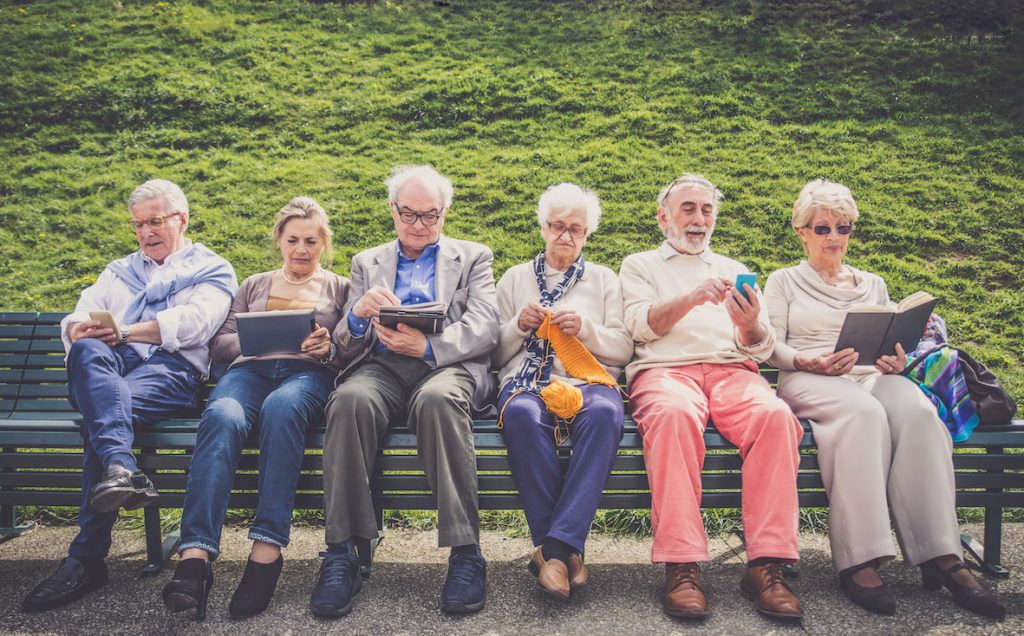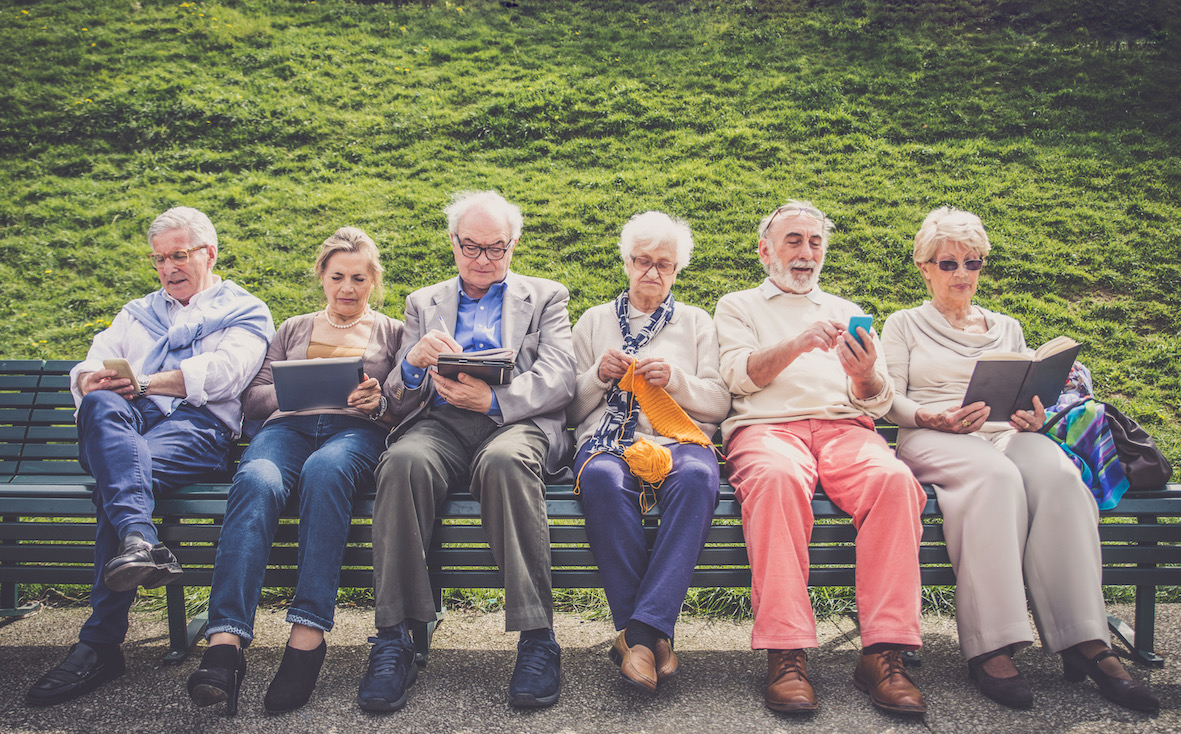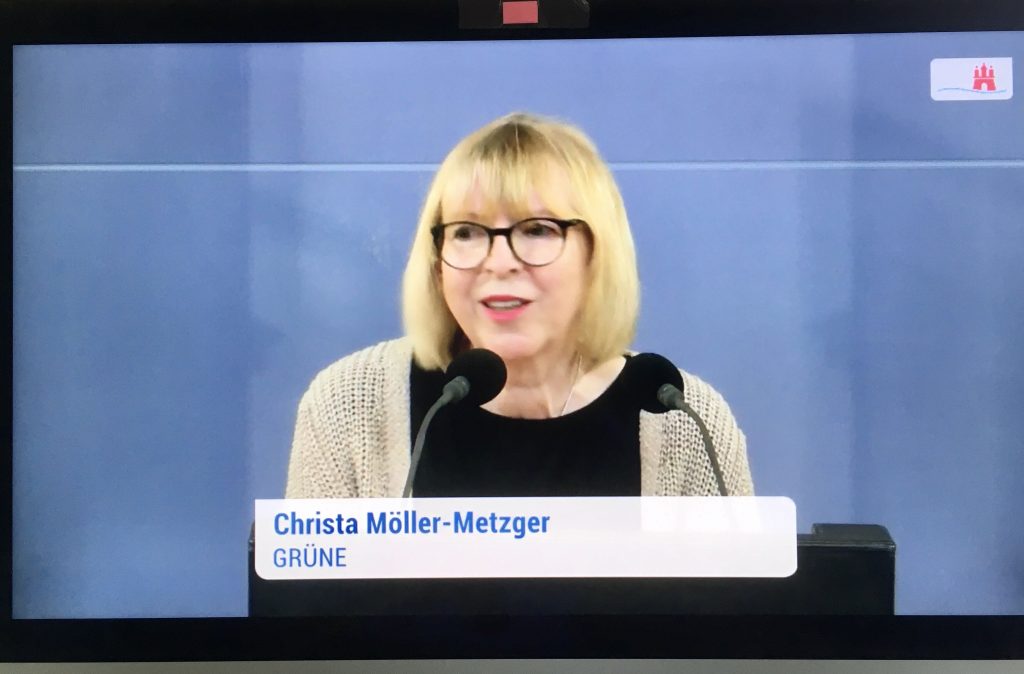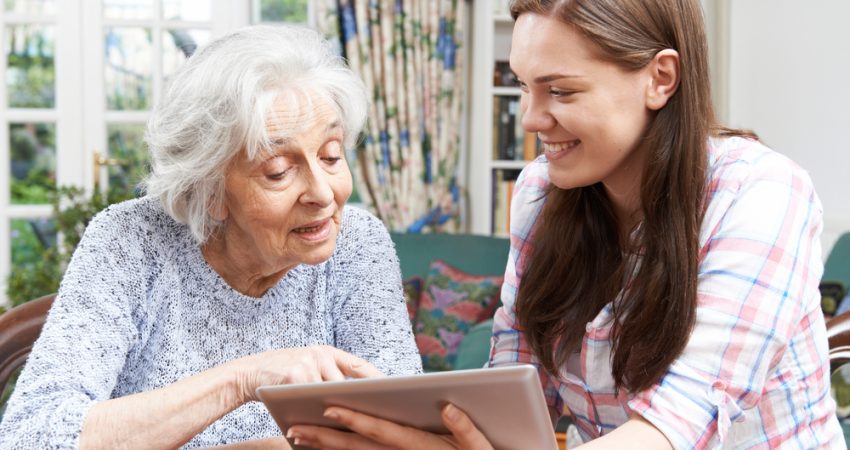This is really a great program from the World Health Organization: Over 120 people from around 25 countries who are interested in senior citizen policy meet regularly via zoom to discuss case studies and learn more about the WHO concept of age-friendly cities and communities.

I’m Christa Möller-Metzger from Hamburg, Germany, member of the Hamburg Parliament and reported on our digitization project during the pandemic. This was my presentation:
Situation in Hamburg
The population in Hamburg is growing. 1.8 million people live in the city. Round about 20% of the people are over 65 years old (ca. 360.000). And this group is still growing. 40 percent of all people over 60 live alone in Hamburg.
So far Hamburg focusses on healthcare, barrier-free housing for the elderly – of which there are still far too few! – and new concepts for senior meeting places. 2018 started the program „Hamburger Hausbesuch“ – Hamburg home visit. On their 80th birthday every 80-year-old receives a letter announcing a visit with an offer for further guidance and help.
Impact of the Pandemic
With the beginning of my legislature Corona started. And due to the pandemic, the visits had to be stopped und many places, where older people meet, had been shut down.
Many older people were lonely. Many of them were not used to communicating via messengers, often had no internet at all or rarely used it. For me digital participation became crucial for maintaining life quality. That’s when we startet the project for digital participation of older people, as part of the action plan of age-friendly Cities.
First we organized with the committee of equality (Gleichstellungsausschuss) a public hearing, that generated a lot of interest in members of Parlament, Senate and Organisations of older people.
The experts agreed that older people in particular with less education and low income were left behind digitally. These are mainly women and people with a migration background
Process
Then we submitted an application in the parliament and the government of the city provided financial support to fit up many senior meeting places with digital equipment.The goal was to mitigate social isolation during the pandemic.
So we wanted training lessons, rental tablets and smartphones and more WiFi in senior centers and WiFi in nursing homes with support of the Hamburg Government.
We also wanted to train the future trainers and provide them with rental equipment. The Department of Equality has set up a round table for all seniors’ organizations and providers of digital training courses specifically for older people. The authority then described the current situation based on the hearing and the round table, and developed a plan on how to mitigate the digital divide in Hamburg.
Non profit organisations for seniors can apply for financial support. The funds are mostly distributed via the districts.
We also support with the money school projects where students learn how to instruct older people on smartphones and tablets.
The project is intended to attract around 100 multipliers in the short term (kurzfristig). A guideline for the application is currently composed. In addition to that, it has been taken care of digital support for the members of the advisory boards for senior citizens in all 7 districts.
Another goal is to establish free Wifi in all nursing homes. After another parliamentary request, the senate confirmed efforts to include Wifi as a basic requirement for all facilities of permanent care.
Challenges
Our learnings:
The biggest barriers were lack of money and lack of manpower in the authoritys. And there is still some doubt, that elderly people really need and want the internet.
This is part of an old-fashioned understanding of aging. To build an age-friendly city it is necessary, to create a new perception of older people: We need a potential-oriented elderly policy, not a deficit-oriented.
Older people are members of the society, who take action for themselves and for others. But in order to do so, older people need an age-friendly environment. They need access to all spaces, where life takes place.
Solutions
It has proven to be very successful that we conducted the expert hearing on the digitization of senior citizens.
All in all close contact with politics is crucial. You need direct contact with elderly people and members of senior-organisations who work on content and ideas. And you need politicians, who want to implement the ideas and make them to their own, who have contact to all important organisations in this field and who know, how to organize money for the projects.
You need good story-telling and a direct contact to newspapers, magazines and you must be present in the field of social media. It is always teamwork, you need coworker and cocreation.
For me personally, it is very helpful, that I am working in the parliament in Hamburg and at the same time at the federal and the European level with the European Nework of Green Seniors.






